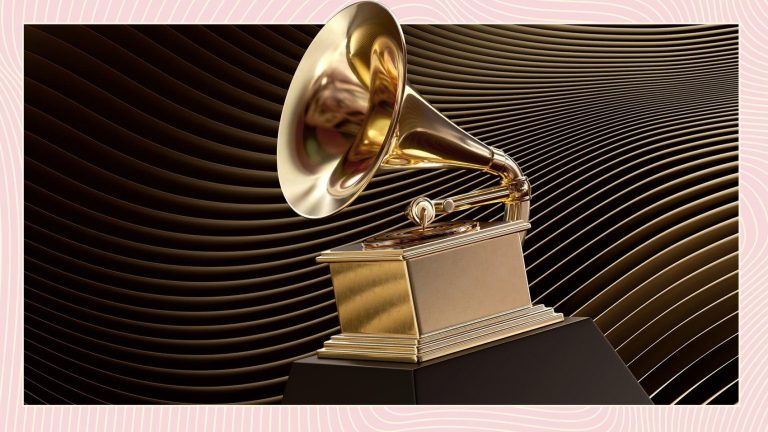
In today’s busy world, finding moments of peace can feel like a challenge. Luckily, two timeless practices—music and meditation—offer a way to calm the mind and enhance our well-being. Individually, each has its strengths, but when combined, they create a powerful synergy that can lead to deeper relaxation and clarity. This article explores how music and meditation work together, the benefits of this combination, and practical tips for incorporating them into your daily routine.
Key Takeaways
- Music can help regulate emotions and create a sense of calm.
- Meditation enhances mental clarity and reduces stress when practiced regularly.
- Combining music and meditation can deepen the meditative experience and improve focus.
- Different types of music, like nature sounds or instrumental tracks, can enhance meditation.
- Finding the right music for your meditation practice is key to maximizing its benefits.
The Importance of Music in Well-Being
Music is often called a universal language, and it really does speak to something deep inside us. It’s not just about entertainment; it plays a big part in our overall well-being. Think about how a certain song can instantly change your mood or bring back a flood of memories. That’s the power of music at work.
Emotional Regulation Through Sound
Music has a way of helping us manage our emotions. It can be a tool for processing feelings, whether we’re happy, sad, or anything in between. I know when I’m feeling down, putting on some upbeat tunes can give me a much-needed boost. It’s like the music is giving me permission to feel better. On the other hand, when I need to wallow a bit, a sad song can help me acknowledge those feelings without getting stuck in them. It’s all about finding the right soundtrack for your emotional state. Listening to calming music can really lower your heart rate and blood pressure.
Music as a Tool for Relaxation
Music can be a great way to unwind after a long day. It’s like a mini-vacation for your mind. I often use music to create a relaxing atmosphere at home.
- Dim the lights.
- Light a candle.
- Put on some chill music.
It’s amazing how quickly you can de-stress with a little musical help. Some people like classical music, others prefer nature sounds, but the key is to find something that helps you let go of tension. Music therapy is an evidence-based practice that involves using music interventions to address individual needs and improve well-being.
I’ve found that listening to music before bed really helps me sleep better. It quiets my mind and allows me to drift off more easily. It’s a simple but effective way to improve my sleep quality.
The Role of Music in Personal Growth
Music can also play a role in personal growth. It can inspire us, motivate us, and help us connect with ourselves on a deeper level. I’ve often found that listening to music while I’m working on a project helps me stay focused and creative. It’s like the music is fueling my imagination. Plus, learning to play an instrument can be a great way to challenge yourself and develop new skills. It’s not always easy, but the sense of accomplishment you feel when you finally master a new piece is totally worth it. Music’s influence extends to cognitive improvements, including enhanced focus, memory, and problem-solving skills.
Here’s a simple table showing how different types of music can affect your mood:
| Music Type | Effect on Mood |
|---|---|
| Upbeat Pop | Energizing, Uplifting |
| Classical | Calming, Relaxing |
| Electronic | Motivating, Focused |
| Acoustic/Folk | Peaceful, Reflective |
The Power of Meditation for Mental Clarity
Meditation isn’t just some trendy thing people are doing; it’s a real tool for getting your head straight. I know, I know, sitting still and doing nothing sounds impossible, but trust me, it’s worth a shot. It’s like hitting the reset button on your brain.
Benefits of Regular Meditation Practice
Okay, so what’s the big deal with meditation? Well, for starters:
- It can seriously cut down on stress. Life’s chaotic, and meditation helps you deal.
- It’s like a mental gym, improving your focus. Ever feel like your brain’s all over the place? Meditation can help with that.
- It can boost your emotional health. It’s not a magic cure, but it can make you more resilient. better sleep support is another great benefit.
I started meditating because I was constantly stressed and couldn’t focus. Honestly, the first few times were rough. My mind was racing, and I felt like I was wasting time. But I stuck with it, and slowly, things started to change. I felt calmer, more focused, and less reactive to everyday annoyances. It’s not a miracle, but it’s a solid improvement.
Meditation Techniques for Beginners
Don’t know where to start? No problem. Here are a few simple techniques:
- Breath Awareness: Just focus on your breath. In and out. When your mind wanders (and it will), gently bring it back.
- Body Scan: Pay attention to different parts of your body, noticing any sensations without judgment.
- Guided Meditation: Use an app or video to guide you through a meditation. It’s like having a meditation coach in your pocket.
Mindfulness and Self-Awareness
Meditation is all about mindfulness – being present in the moment. It’s about noticing your thoughts and feelings without getting caught up in them. It’s like watching a movie of your mind, instead of being in the movie. This can lead to some serious self-awareness. You start to understand why you react the way you do, what triggers you, and what truly makes you happy. It’s a journey of self-discovery, one breath at a time.
The Synergy of Music and Meditation
Music and meditation, when combined, can create something truly special. It’s like peanut butter and jelly – good on their own, but amazing together. Let’s explore how these two practices amplify each other.
Creating a Calming Atmosphere
Music can be a fantastic tool for setting the mood for meditation. The right kind of music can help you relax and let go of stress. Think about it: a peaceful melody can instantly make you feel more at ease. It’s all about finding sounds that resonate with you and help you create a serene environment for your practice. I find that ambient music works best for me, but everyone is different.
Enhancing Focus and Concentration
One of the biggest challenges in meditation is keeping your mind from wandering. Music can act as an anchor, giving your mind something gentle to focus on. Instead of getting caught up in thoughts, you can pay attention to the music therapy process, its rhythm, and its melody. This can make it easier to stay present and deepen your meditative state. It’s like having a gentle guide that keeps you on track.
Deepening the Meditative Experience
When music and meditation come together, they can take you to a deeper level of relaxation and self-awareness. The music helps quiet the mind, allowing you to access a more profound sense of inner peace. It’s like unlocking a secret door to a more tranquil state of being. I’ve noticed that when I meditate with music, I feel more connected to myself and the world around me.
Combining music and meditation is like creating a personal sanctuary. It’s a way to escape the chaos of everyday life and find a moment of calm and clarity. It’s not always easy, but the rewards are well worth the effort.
Exploring Different Types of Meditation Music
Okay, so you’re ready to add some tunes to your meditation? Awesome! But where do you even start? There’s a ton of stuff out there, and it can be overwhelming. Let’s break down some popular types of meditation music to help you find your groove. It’s all about finding what clicks with you, so don’t be afraid to experiment!
Ambient and Instrumental Sounds
Ambient music is great because it’s designed to fade into the background. Think soft, slow tempos and simple sounds. It’s not supposed to grab your attention, but rather create a calming atmosphere. Instrumental music, without lyrics, can also be super effective. You can focus on the melodies and harmonies without getting distracted. For example, you might find instrumental music versions of popular songs that you already love.
Nature Sounds for Grounding
Okay, who doesn’t love the sound of rain? Nature sounds are awesome for meditation because they have a natural ability to make you feel peaceful and connected. Raindrops, ocean waves, birds chirping – it’s all good! You can even combine nature sounds with soft instrumental music for an even more relaxing experience. I find that nature sounds really help me to stay present and grounded during my meditation.
Guided Meditations with Music
If you’re new to meditation, guided meditations with music can be a lifesaver. You get the benefit of a soothing voice guiding you through the meditation, plus calming music to help you relax. It’s a great way to learn different meditation techniques and stay focused. The combination of a soothing voice and gentle melodies can really help beginners focus on their breath and let go of distractions.
Finding the right music is key. It might take some trial and error to find what works best for you. Don’t be afraid to try different genres and styles until you find something that resonates with you. The goal is to create a peaceful and supportive environment for your meditation practice.
Amplified Benefits of Combining Practices

Okay, so you’re already into music and meditation separately? Great! But when you put them together, things get even better. It’s like peanut butter and jelly – good on their own, amazing together. Let’s talk about what happens when you mix these two awesome practices.
Heightened Relaxation and Stress Relief
Combining music and meditation can seriously turn up the dial on relaxation. It’s like giving your brain a double dose of chill. The music helps to quiet your mind, making it easier to slip into a meditative state. And meditation, in turn, helps you to really soak in the calming effects of the music. Think of it as a super-powered stress buster.
Improved Emotional Healing
Music has a way of tapping into our emotions, sometimes in ways we don’t even realize. When you meditate with music, it can help you process those feelings in a safe and gentle way. It’s like having a soundtrack for your emotional journey. You might find yourself feeling more at peace with past hurts or more hopeful about the future. It’s not a quick fix, but it can be a really helpful tool for emotional healing.
Fostering Creativity and Insight
Ever feel stuck in a rut? Music and meditation can help you break free. By calming your mind and opening yourself up to new sounds and sensations, you might be surprised at the creative ideas and insights that pop into your head. It’s like clearing the clutter so your inner genius can shine through. I find that ambient music really helps me with this. It’s not distracting, but it creates a nice backdrop for thought.
Combining music and meditation is like creating a positive feedback loop for your mind and body. The music helps you relax, and the meditation helps you focus. This combination can lead to a deeper sense of peace, clarity, and well-being.
Considerations for Using Music in Meditation

Choosing the Right Music
Picking the right tunes is super important. What chills one person out might drive another up the wall. It’s all about finding what clicks with you. Think about what kind of music naturally makes you feel at peace. Is it the sound of rain, some ambient synth, or maybe even classical guitar? Don’t be afraid to experiment. I know I went through a phase where I thought whale songs were the answer, but turns out, not so much. Now I stick to instrumental stuff, usually something without a strong beat. It’s a journey, not a destination, right?
Balancing Music and Silence
Music is great, but sometimes silence is golden. You don’t want to become so reliant on music that you can’t meditate without it. It’s like needing training wheels forever. Try alternating between music and silence during your sessions. Maybe start with music to get you in the zone, then fade it out and just focus on your breath. Or dedicate some sessions to pure silence. It can be tough at first, but it really helps you connect with your inner self. I find that mindful listening can be a great way to appreciate the music without letting it take over.
Mindful Listening Techniques
It’s not just about having music on in the background; it’s about listening to it. Really listening. Pay attention to the different instruments, the melodies, the harmonies. How does the music make you feel? Does it evoke certain memories or emotions? Don’t judge the music, just observe it. This kind of mindful listening can actually become part of your meditation. It’s like focusing on your breath, but with sound. I’ve found that it can really deepen the experience and help me stay present.
I think the biggest thing to remember is that there’s no right or wrong way to do it. It’s all about finding what works for you and creating a practice that you enjoy. So, experiment, be patient, and most importantly, be kind to yourself.
Incorporating Music into Your Meditation Routine
Creating Personalized Playlists
Okay, so you’re ready to bring music into your meditation? Awesome! First things first: ditch the random shuffle and start building playlists. Think of it as curating a vibe, not just throwing songs together. I usually aim for at least 30-45 minutes of music, enough to really settle in. I’ve got playlists for different moods – one for when I’m stressed, another for when I need a creativity boost, and a third for pure relaxation. It’s all about what you need.
Experimenting with Different Genres
Don’t get stuck thinking meditation music has to be pan flutes and whale sounds (though, hey, if that’s your thing, go for it!). Seriously, branch out! I’ve found some amazing ambient electronic tracks that work wonders, and even some classical pieces. The key is finding music without a lot of jarring changes or lyrics that pull you out of the moment. I’ve even used some chill instrumental sounds from movie soundtracks. It’s all about experimenting and seeing what resonates with you. Here’s a quick table of genres to consider:
| Genre | Why it Might Work |
|---|---|
| Ambient | Creates a calming atmosphere |
| Classical | Can be very soothing and structured |
| Nature Sounds | Grounding and relaxing |
| Electronic (Chill) | Repetitive rhythms can aid focus |
| World Music | Unique sounds can deepen the meditative experience |
Setting the Right Environment
Okay, music’s sorted, but don’t underestimate the power of your surroundings. I mean, trying to meditate in a noisy room with bright lights is just setting yourself up for failure. Find a quiet spot where you won’t be disturbed. Dim the lights, maybe light a candle or some incense if you’re into that. Make sure you’re comfortable – sit on a cushion, lie down, whatever works. I find that having a dedicated meditation space really helps me get into the right mindset. It’s like telling your brain, "Okay, time to chill."
I like to think of my meditation space as a sanctuary. It’s a place where I can escape the chaos of daily life and reconnect with myself. The right environment can make all the difference in the world.
Wrapping It Up: The Power of Music and Meditation
So, there you have it. Music and meditation together can really change the game for your mental health. It’s not just about sitting in silence anymore; adding music can make it easier to relax and focus. Whether you’re a pro at meditating or just starting out, giving this combo a shot might surprise you. As we deal with life’s ups and downs, let’s remember to tap into these age-old practices. They can help us find that calm we all crave, reminding us that peace is just a melody away.
Frequently Asked Questions
Can I use any type of music for meditation?
While you can use different types of music, it’s best to choose calming and instrumental tracks. Music without lyrics, like ambient or classical, works well.
How long should I listen to music during meditation?
You can listen for the entire duration of your meditation session, which can be anywhere from 5 to 30 minutes or more, depending on your preference.
Is it necessary to have music while meditating?
No, it’s not necessary. Some people prefer silence for meditation, while others find music helps them focus and relax.
What types of music are best for beginners?
Beginners often find soft instrumental music, nature sounds, or gentle melodies helpful as they create a peaceful environment.
Can I mix different genres of music in my meditation practice?
Yes, experimenting with different genres can help you find what works best for you. Just make sure it’s calming and not too distracting.
How can I create a good meditation atmosphere with music?
Choose a quiet space, lower the lights, and play your selected music at a soft volume to create a relaxing environment.








